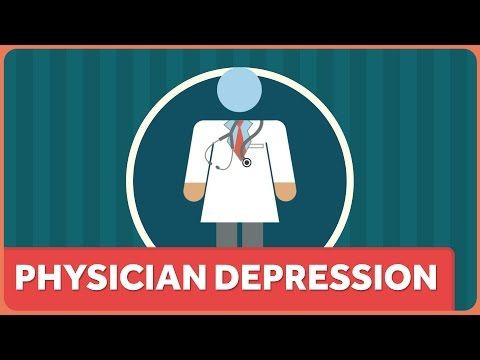Doctor Depression: Many Physicians Suffer From Anxiety And Substance Abuse, But Don’t Get Treatment

It’s often easy to see doctors as infallible. As they’re more knowledgeable about medicine than the general population, one would assume that they’re the best at taking care of their own health. But a new video out of Healthcare Triage breaks down that assumption in an attempt to raise awareness about a severe problem in healthcare: physician depression.
Dr. Aaron Carroll, the narrator of the video, considers himself a decent doctor. But he admits to having had depressive symptoms as a resident intern during his training years: He was unable to feel joy, he cried frequently, had trouble connecting with patients, and was prone to experiencing feelings of anxiety. Carroll provides personal experience to the widespread issue, making it seem more real: Depressed doctors aren’t only a danger to themselves, but they can be harmful to their patients in extreme cases. And up to one in four young doctors experience depression, according to one study published last year.
Perhaps ironically, “physicians exist in a profession where admitting a problem carries with it a stigma that’s more impactful than others,” Carroll states. Because of this stigma, a significant amount of physicians turn to substance abuse — alcoholism and drug abuse — to “self-medicate” as opposed to mental health treatment. Carroll cites a 2012 study in which researchers found 15 percent of the American College of Surgeons had some level of alcoholic abuse or dependence; that number was even higher among female surgeons (25 percent). The researchers also found that depression was the strongest link to substance abuse among doctors.
“Doctors have much easier access to drugs than others,” the video adds. “Because of this, they are more likely to misuse prescription drugs than the general population.”
Hand in hand with depression is physician burnout, another significant issue rampant in the healthcare world, affecting young residents, nurses, and even experienced surgeons. And physicians have one of the highest suicide rates among any profession, Carroll adds.
“Too many physicians, especially trainees, suffer in silence, afraid to ask for help for fear that they will be punished professionally, if not personally,” Carrol concludes. Raising awareness about the issue would allow doctors to begin removing the stigma of mental health treatment.



























